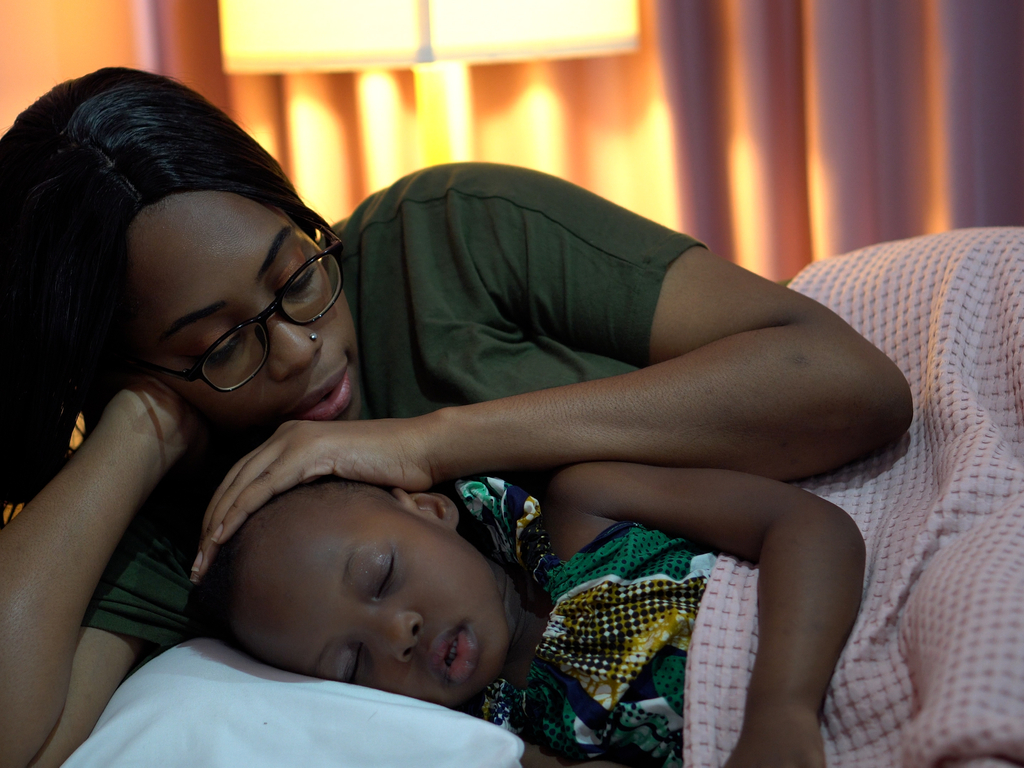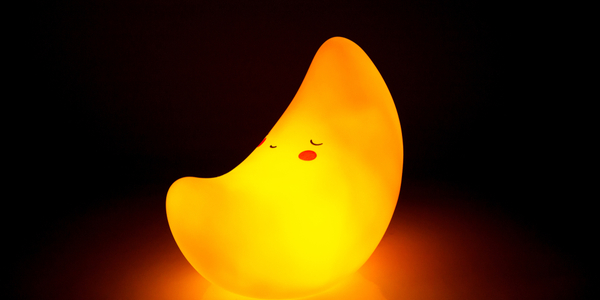How to help your child with nightmares:

Nightmares can be a distressing experience for both children and parents alike, often leaving little ones feeling frightened and unsettled during the night. As parents, it’s natural to want to provide comfort and support to our children when they encounter these unsettling dreams.
In this blog, we will look at what causes your child to have nightmares and practical strategies to help you support your child through them.
What is a nightmare?
-
Nightmares are scary dreams that usually wake children leaving them scared and upset. As most of us will remember, common themes of nightmares are being chased by a monster or animal or being lost or stuck somewhere you can’t escape from. While the subjects can be extreme and frightening at the time, nightmares are perfectly normal reactions to the stresses and strains of growing up. They can involve feelings of anxiety, fear, sadness or anger and be triggered during particularly stressful times in a child or young person’s life. Very often they are simply caused by being overtired or the healthy development of a child’s imagination.
- Nightmares are very common in children between the ages of 6 and 10 years, but can also be experienced by younger and older children and about a quarter of children have at least one nightmare a week.
- As nightmares occur in Rapid Eye Movement sleep (REM) or ‘dreaming’ sleep, they usually happen in the second half of the night towards the morning, when REM sleep becomes more frequent.
- Nightmares will feel very real to your child, who will need comfort and reassurance from you in the night and may even struggle to get back to sleep. Some children can be so scared at the prospect of a nightmare returning that they become anxious as bedtime approaches and resist going to bed.
If your child is having a nightmare give them comfort and reassurance

- Your child is quite likely to call out or come to you in some distress following a nightmare.
- The best thing to do is to comfort and reassure your child, letting them know they are safe and secure. Once they are calm and happy they will usually go back to sleep.
- It is important to remember that under the age of four to five, children cannot tell the difference between a dream and reality, so it is particularly important to give them reassuring cuddles and comfort, rather than explaining the nightmare away at this time.
- If your child has recurrent nightmares about the same thing, try talking through this the next day and help them think up a happy ending. This can help to defuse the power of the nightmare and the hold its repetition may have on your child.
- If there is a reoccurring monster theme make the monster into a character of fun. During the day draw silly monster pictures with your child and make up silly monster songs: you could also set up a dream catcher in their bedroom to catch bad dreams.
Identify the cause of your child’s nightmare
- Talk to your child to help identify what might be the cause of their nightmare. It is best to do this during the day well away from bedtime. Discussing your child’s worries just as they are going to bed could trigger worries or scary thoughts and prevent them from going to sleep. Instead have 10 to 15 minutes of undisturbed 1 to 1 time with your child earlier in the day, that you set aside especially to discuss their concerns.
- After you’ve said goodnight consider using a relaxation and breathing technique or a simple hand or foot massage to help relax your child at bedtime.
Is your child getting enough sleep?
- Children who don’t have enough sleep are more likely to have nightmares. Helping your child to have more sleep, could reduce the frequency of their nightmares.
I don’t want you to leave!
- If your child gets anxious about you leaving at bedtime, explain that you will regularly check in on them. Return after only a minute or two and from the doorway, briefly reassure your child. Keep repeating this until they go to sleep or are happy for you to leave.
- Over time you can very slowly extend the time you leave the room until they are happy to go to sleep without you there.
A friendly bedtime toy

- Having a security object in bed overnight such as a special cuddly toy can help your child feel more relaxed and happy at bedtime and throughout the night.
Scary books and media
- Vet all the books, TV programmes and media your child could be watching or overhearing. Many traditional bedtime stories feature wolves, witches and bears and your child may well be quietly listening to things that you are not aware of.
Fears of the dark
- This problem is widespread among young children and starts when their imagination kicks in. Children do eventually grow out of this fear, but in the meantime, it can make them reluctant to go to bed and can wake them at night.
- Most children are reassured by the presence of a night light in their bedroom. Set up a dim amber or orange glow light in your child’s bedroom, this will not stop them from sleeping but will help the room feel less scary.
- Go into your child’s bedroom when it’s dark and with a child’s eye look around the bedroom to see if there is anything in the room that could look scary at night. A favourite cuddly toy in the day can turn into a scary monster in the dark.

Seek professional help
- If your child is having regular severe nightmares you may need to discuss this with your GP.
